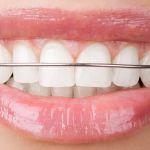Expert Dental Care Advice: Tips for Maintaining a Healthy Smile
- 1. Importance of Dental Care
- 2. Common Dental Problems and How to Prevent Them
- 3. Building a Proper Dental Care Routine
- 4. Dental Hygiene Tips from Experts
- 5. Real-Life Dental Care Success Stories
- 6. Best Products for Dental Care
1. Importance of Dental Care
Dental care is more than just keeping your teeth clean – it plays a crucial role in maintaining overall health. Poor dental hygiene can lead to various health issues, including gum disease, cavities, and even heart disease. Regular brushing, flossing, and professional dental check-ups are essential for preventing serious dental problems. Maintaining good oral hygiene habits will not only keep your teeth looking great but will also improve your overall well-being.
2. Common Dental Problems and How to Prevent Them
Even with good oral hygiene, there are common dental issues that many people face. Understanding these problems and how to prevent them is essential for long-term dental health:
- Cavities: Cavities are caused by tooth decay, often due to plaque buildup. Regular brushing with fluoride toothpaste can help prevent cavities. Avoid sugary snacks and drinks, which contribute to tooth decay.
- Gum Disease: Gum disease is a result of plaque buildup on the gums. It can lead to inflammation, bleeding, and tooth loss if left untreated. Flossing daily and professional cleanings can help prevent gum disease.
- Bad Breath: Often caused by poor dental hygiene or bacteria in the mouth, bad breath can be avoided by brushing your teeth twice a day, using mouthwash, and staying hydrated.
- Tooth Sensitivity: Sensitive teeth are usually a result of enamel wear. Use a toothpaste designed for sensitive teeth and avoid acidic foods that can wear down enamel.
3. Building a Proper Dental Care Routine
Establishing a solid dental care routine is essential for maintaining oral health. Here’s a step-by-step guide to a proper dental care routine:
- Brush Twice a Day: Brush your teeth for at least two minutes in the morning and before bed. Use a fluoride toothpaste to remove plaque and prevent cavities.
- Floss Daily: Flossing removes food particles and plaque from between the teeth, where a toothbrush can't reach. Make it a part of your daily routine.
- Use Mouthwash: An antimicrobial mouthwash helps kill bacteria and freshen breath. Choose a mouthwash that fights plaque and gingivitis.
- Regular Dental Check-ups: Visit your dentist at least twice a year for professional cleanings and check-ups to catch any potential issues early.
4. Dental Hygiene Tips from Experts
Experts recommend a few extra tips to keep your teeth in tip-top shape:
- Use the Right Toothbrush: Choose a toothbrush with soft bristles to avoid damaging your gums. Electric toothbrushes can also help remove plaque more effectively.
- Change Your Toothbrush Regularly: Replace your toothbrush every 3-4 months, or sooner if the bristles are frayed.
- Drink Plenty of Water: Water helps wash away food particles and bacteria in the mouth. Drinking water throughout the day can also help maintain saliva production, which naturally cleanses your mouth.
- Avoid Smoking: Smoking contributes to gum disease, tooth discoloration, and bad breath. Quitting smoking can greatly improve your oral health.
5. Real-Life Dental Care Success Stories
Many people have successfully improved their oral health by following expert dental care advice. For instance, Lisa, a 34-year-old mother of two, struggled with gum disease and sensitive teeth. After incorporating daily flossing, using a fluoride mouthwash, and switching to a softer toothbrush, her dentist noticed significant improvements in her gum health during her next check-up. Similarly, Mark, who had long struggled with bad breath, found that drinking more water and using a tongue scraper helped eliminate his problem. These real-life success stories show how expert dental care advice can lead to noticeable improvements.
6. Best Products for Dental Care
Using the right products can make a huge difference in maintaining good dental health. Here are some of the best products recommended by dental professionals:
- Electric Toothbrushes: An electric toothbrush removes plaque more effectively than a manual toothbrush. Look for models with built-in timers and pressure sensors for the best results.
- Floss Picks: For those who find traditional flossing difficult, floss picks are a great alternative. They allow for easier and more effective flossing.
- Whitening Toothpaste: If you're looking to brighten your smile, use a whitening toothpaste that helps remove surface stains without damaging the enamel.
- Water Flossers: Water flossers are an excellent option for people with braces or sensitive gums, offering a gentle yet effective way to clean between teeth.
For more expert-recommended products, visit Dentistry Toothtruth, where we offer a range of high-quality dental care products. Click here to explore our top picks for dental care!







 Ernstberger Orthodontics5.0 (326 review)
Ernstberger Orthodontics5.0 (326 review) Lightfoot Center for Laser Periodontics5.0 (69 review)
Lightfoot Center for Laser Periodontics5.0 (69 review) Kanawha City Pediatric Dentistry4.0 (163 review)
Kanawha City Pediatric Dentistry4.0 (163 review) Dr. Dental: Dentistry & Braces4.0 (711 review)
Dr. Dental: Dentistry & Braces4.0 (711 review) North Atlanta Family Dentistry4.0 (482 review)
North Atlanta Family Dentistry4.0 (482 review) Richmond VA Dental Arts4.0 (181 review)
Richmond VA Dental Arts4.0 (181 review) The Importance of Oral Health Education During Pregnancy for a Healthy Pregnancy
The Importance of Oral Health Education During Pregnancy for a Healthy Pregnancy Best Tips for Brushing Your Teeth Properly for Healthy Gums: Essential Techniques for Oral Health
Best Tips for Brushing Your Teeth Properly for Healthy Gums: Essential Techniques for Oral Health Why Skipping Dental Checkups Can Lead to Bigger Oral Health Problems
Why Skipping Dental Checkups Can Lead to Bigger Oral Health Problems Advantages of Porcelain Dental Restorations
Advantages of Porcelain Dental Restorations How Can Diabetes Cause Tooth and Gum Problems? Preventing and Managing Oral Health Issues
How Can Diabetes Cause Tooth and Gum Problems? Preventing and Managing Oral Health Issues Healthy Habits for Promoting Good Oral Health and Hygiene: Tips for a Healthy Smile
Healthy Habits for Promoting Good Oral Health and Hygiene: Tips for a Healthy Smile